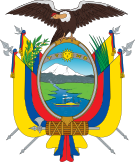
A constituent assembly is a body assembled for the purpose of drafting or revising a constitution. Members of a constituent assembly may be elected by popular vote, drawn by sortition, appointed, or some combination of these methods. Assemblies are typically considered distinct from a regular legislature, although members of the legislature may compose a significant number or all of its members. As the fundamental document constituting a state, a constitution cannot normally be modified or amended by the state's normal legislative procedures in some jurisdictions; instead a constitutional convention or a constituent assembly, the rules for which are normally laid down in the constitution, must be set up. A constituent assembly is usually set up for its specific purpose, which it carries out in a relatively short time, after which the assembly is dissolved. A constituent assembly is a form of representative democracy.
Many entities have been called a Constitutional Commission with the general purpose of reviewing a constitution, or planning to create one.

The current Constitution of France was adopted on 4 October 1958. It is typically called the Constitution of the Fifth Republic(French: Constitution de la Ve République), and it replaced the Constitution of the Fourth Republic of 1946 with the exception of the preamble per a Constitutional Council decision in July 1971. The current Constitution regards the separation of church and state, democracy, social welfare, and indivisibility as core principles of the French state.

The Constitution of the Bolivarian Republic of Venezuela is the current and twenty-sixth constitution of Venezuela. It was drafted in mid-1999 by a constituent assembly that had been created by popular referendum. Adopted in December 1999, it replaced the 1961 Constitution, the longest-serving in Venezuelan history. It was primarily promoted by then President of Venezuela Hugo Chávez and thereafter received strong backing from diverse sectors, including figures involved in promulgating the 1961 constitution such as Luis Miquilena and Carlos Andrés Pérez. Chávez and his followers (chavistas) refer to the 1999 document as the "Constitución Bolivariana" because they assert that it is ideologically descended from the thinking and political philosophy of Simón Bolívar and Bolivarianism. Since the creation of the Constituent National Assembly in August 2017, the Bolivarian government has declared the 1999 constitution suspended until a new constitution is created.

The present Constitution of Portugal was adopted in 1976 after the Carnation Revolution. It was preceded by a number of constitutions including the first one created in 1822, 1826, 1838, 1911, and 1933.

Bahrain has had two constitutions in its modern history. The first one was promulgated in 1973, and the second one in 2002.

A constitutional referendum was held in Bolivia on 25 January 2009, postponed from the initially planned dates of 4 May 2008 and then 7 December 2008. Drafted by the Constituent Assembly in 2007, the new constitution was approved in the referendum according to an exit poll by Ipsos Apoyo for La Razón and ATB, a Bolivian television network. Furthermore, it required early elections to be held on 6 December 2009.

The Constitution of the Kingdom of Thailand, Buddhist Era 2550 (2007) was the constitution of Thailand which was in effect from 2007 to 2014.
Constitutional reform in the Philippines, also known as charter change, refers to the political and legal processes needed to amend the current 1987 Constitution of the Philippines. Under the common interpretation of the Constitution, amendments can be proposed by one of three methods: a People's Initiative, a Constituent Assembly or a Constitutional Convention.

A constitutional referendum was held in France on 21 October 1945. Voters were asked whether they approved of the Assembly elected on the same day serving as a Constituent Assembly, and whether until a new constitution was approved, the country would be governed according to a proposed set of laws that appeared on the ballot paper. If the first proposal had not been approved, the Third Republic would have been restored, but its approval led to the elected Assembly drafting a constitution and proposing it to the people a year later, resulting in the creation of the Fourth Republic. Both were approved by wide margins with a turnout of 79.8%.

A constitutional referendum was held in France on 5 May 1946. Voters were asked whether they approved of a new draft Constitution proposed by the Constituent Assembly elected in 1945.

The Constitution of the Republic of the Union of Myanmar is the supreme law of Myanmar. Myanmar's first constitution adopted by constituent assembly was enacted for the Union of Burma in 1947. After the 1962 Burmese coup d'état, a second constitution was enacted in 1974. The country has been ruled by military juntas for most of its history.

The Constituent National Assembly or ANC was a constitutional convention held in Venezuela in 1999 to draft a new Constitution of Venezuela, but the assembly also gave itself the role of a supreme power above all the existing institutions in the republic. The Assembly was endorsed by a referendum in April 1999 which enabled Constituent Assembly elections in July 1999. Three seats were reserved for indigenous delegates in the 131-member constitutional assembly, and two additional indigenous delegates won unreserved seats in the assembly elections.
A constitutional referendum was held in Brazil on 21 April 1993 to determine the form of government of the country. After the re-democratization of Brazil, an article in the new Constitution determined the holding of a referendum for voters to decide if the country should remain a republic or become a monarchy again, and if the system of government should be presidential or parliamentary. Voting for "monarchy" and "presidentialism" in tandem would annul one's vote.

A constitutional referendum is to be held in Libya after the country's new constitution has been drawn up by a constituent assembly. The expected date for the publication of the constitution was December 2014, but this was delayed because of the ongoing conflict in the country. A General National Congress was elected in July 2012, originally charged with organising constituent assembly elections; however, the National Transitional Council decided that Libyans will instead directly elect the constituent assembly. The General National Congress came to agreement on 10 April 2013 that constituent assembly members will be elected.

A constitutional referendum was held in Egypt in two rounds on 15 and 22 December 2012. Egyptians living abroad were scheduled to vote between 8 and 11 December. Voting for expatriates had been delayed until 12 December 2012 and was extended until 17 December 2012. Voters were asked whether they approve of the draft constitution that was approved by the Constituent Assembly on 30 November 2012.

The second Constitution of Uruguay was in force during the period 1918–1933.

The Constitution of Costa Rica is the supreme law of Costa Rica. At the end of the 1948 Costa Rican Civil War, José Figueres Ferrer oversaw the Costa Rican Constitutional Assembly, which drafted the document. It was approved on 1949 November 7. Several older constitutions had been in effect starting from 1812, with the most recent former constitution ratified in 1871. The Costa Rican Constitution is remarkable in that in its Article 12 abolished the Costa Rican military, making it the second nation after Japan to do so by law. Another unusual clause is an amendment asserting the right to live in a healthy natural environment.

The Constitution of the Republic of the Congo is the basic law governing the Republic of the Congo. In it, it is stated that the Republic of the Congo is a pluralistic, multi-party democracy. A presidential system since 2009, the president's term was originally 7 years, which has now been reduced to five after a 2015 constitutional referendum that instituted a new Constitution, which also reinstated the position of Prime Minister and moved the country to a semi-presidential system. The Council of Ministers – the government – is appointed by the President.

1860 Constitution was the Constitution of Costa Rica for two years, between 1869 and 1871.
















